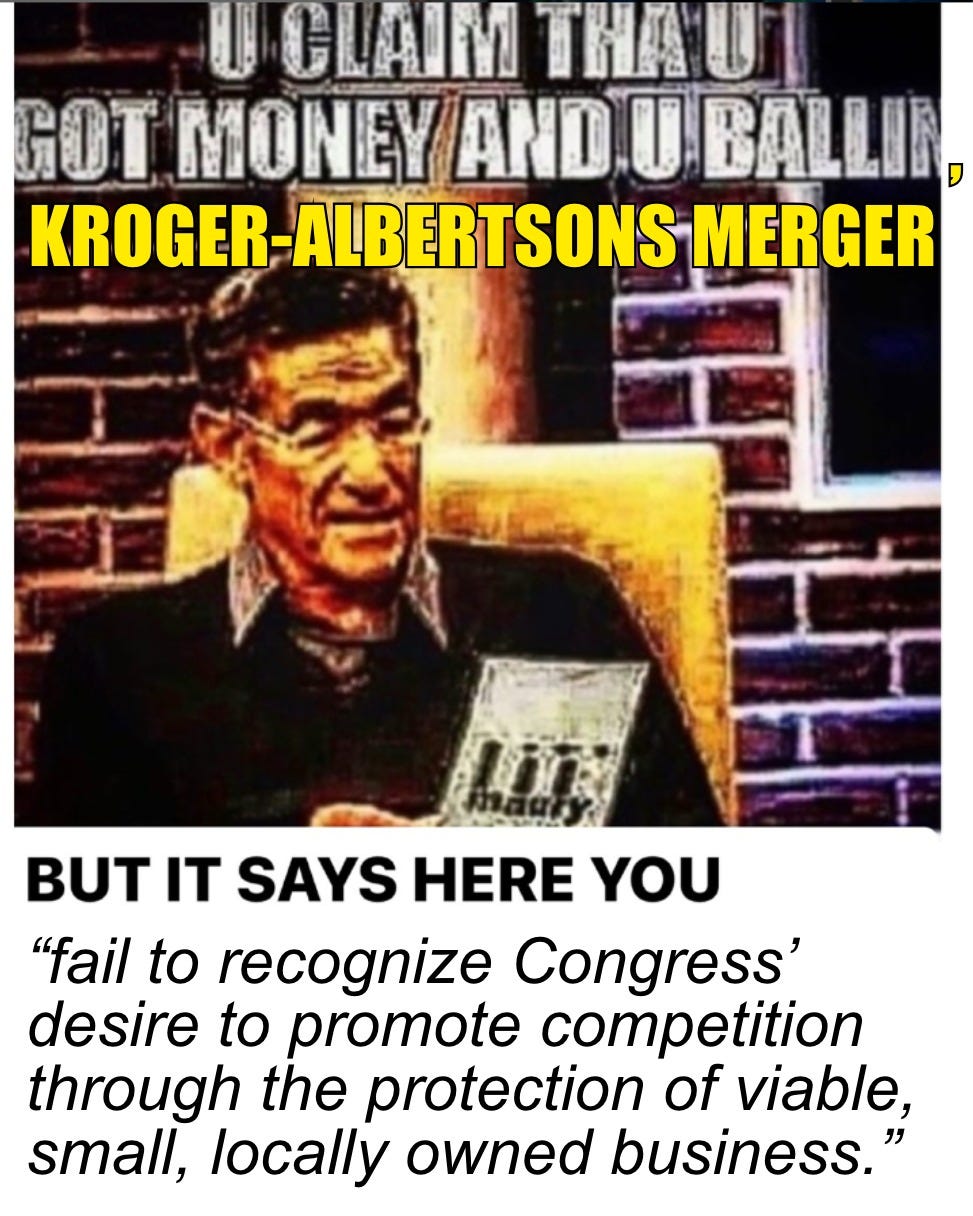Kroger had a bad day in court(s)
Plus: Reviewing 'The Poisoner’s Handbook'!
The Kroger Company, the country’s fifth-largest grocer and one of its most influential buyers of beverage alcohol, had a very bad day in courts yesterday. That’s right: “courts,” plural. At issue was the firm’s troubled $24.6-billion mega-merger with rival Albertsons, and after a pair of unfavorable rulings out of the Pacific Northwest on Tuesday afternoon, that deal—the largest ever proposed in the $1.5-trillion American grocery industry—suddenly has a whole lot more issues.
Because of its massive implications for future of American booze retail, Fingers has closely covered the Kroger-Albertsons merger from the week it was proposed in October 2022. There have been dozens of twists and turns in the two grinding years since, and I’m not going to get into them all here out of respect for your attention span and/or sanity, but the upshot is that the attorneys general of Washington and Colorado and the Federal Trade Commission all filed suits to kibosh Kroger’s would-be tie-up with Albertsons, arguing that it’d be bad for shoppers and workers.
The firms in question, of course disagree with that evaluation, claiming the deal will help them actually lower prices through economies of scale/synergies/etc., but independent industry experts have mostly pegged it as a stinker from the jump. There’s a reason Kroger’s stock price jumped after the 2024 presidential election last month, and it’s not because Wall Street believes Donald Trump is good at saying the word “groceries.”1
Anyway: two of the three lawsuits against the Kroger-Albertsons merger hit milestones yesterday within hours of each other. First, a federal judge in US District Court in Portland, Oregon, ruled in the FTC’s favor, agreeing that the deal was unduly anticompetitive and Kroger’s proposed spinoffs were bullshit. (“There is ample evidence that the divestiture is not sufficient in scale to adequately compete” is how the Honorable Adrienne Nelson put it.) Less than two hours later, a King County Superior Court judge dealt the deal another blow, ruling that a “colossus of a merged Kroger and Albertsons” would violate Washington State’s antitrust laws and couldn’t be permitted.
This is good news for grocery customers and workers (to the extent that these cohorts are distinct from one another, at least), who stood to be gouged by the proposed entity’s consolidated pricing power on products and labor, respectively. “FTC Chair Lina Khan is showing what it looks like for the government to work for working people,” Massachusetts Senator Elizabeth Warren posted on Bluesky following the first ruling.2 In a press release issued last night, United Food and Commercial Workers Local 7 called the rulings “a huge win for tens of thousands of grocery workers and millions of customers across the nation.”
It’s also almost certainly good news for smaller beverage-alcohol brands.



